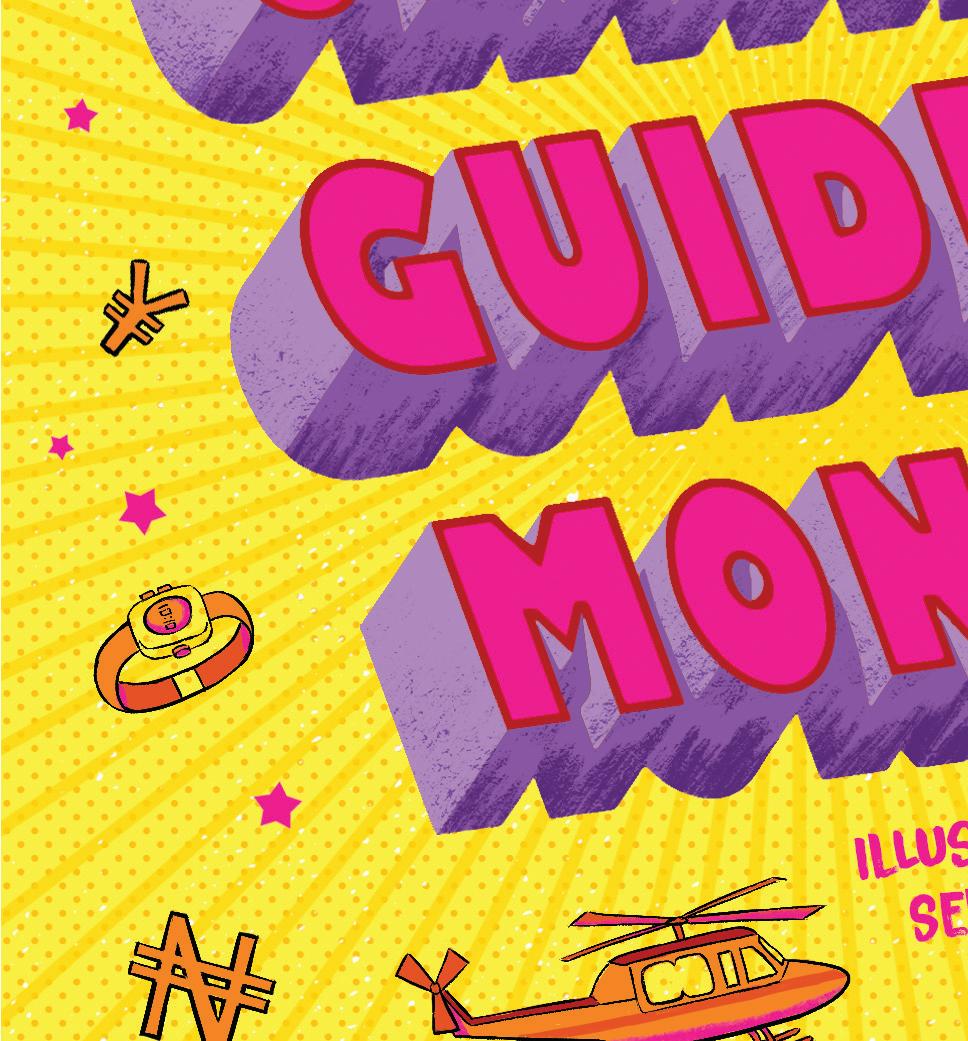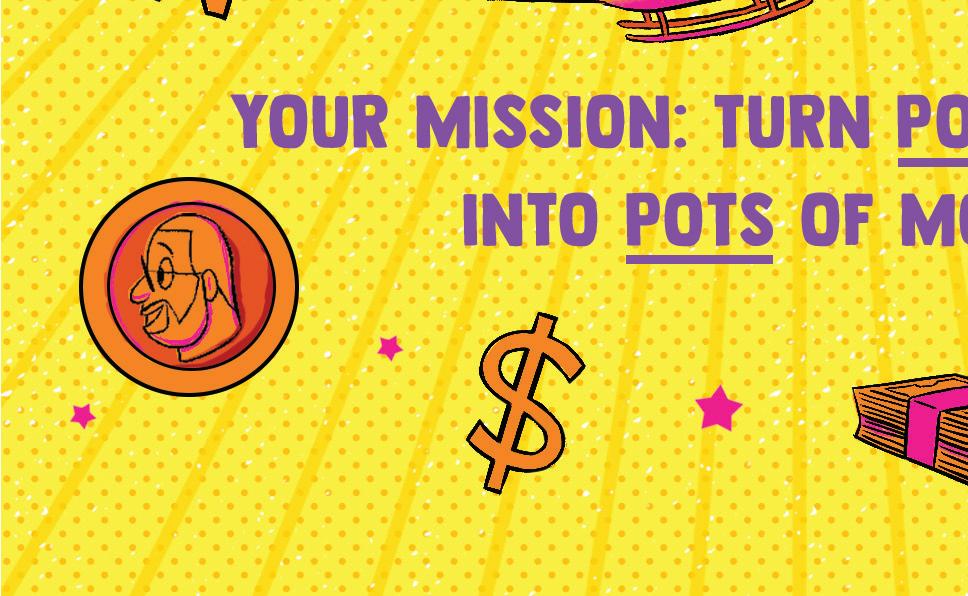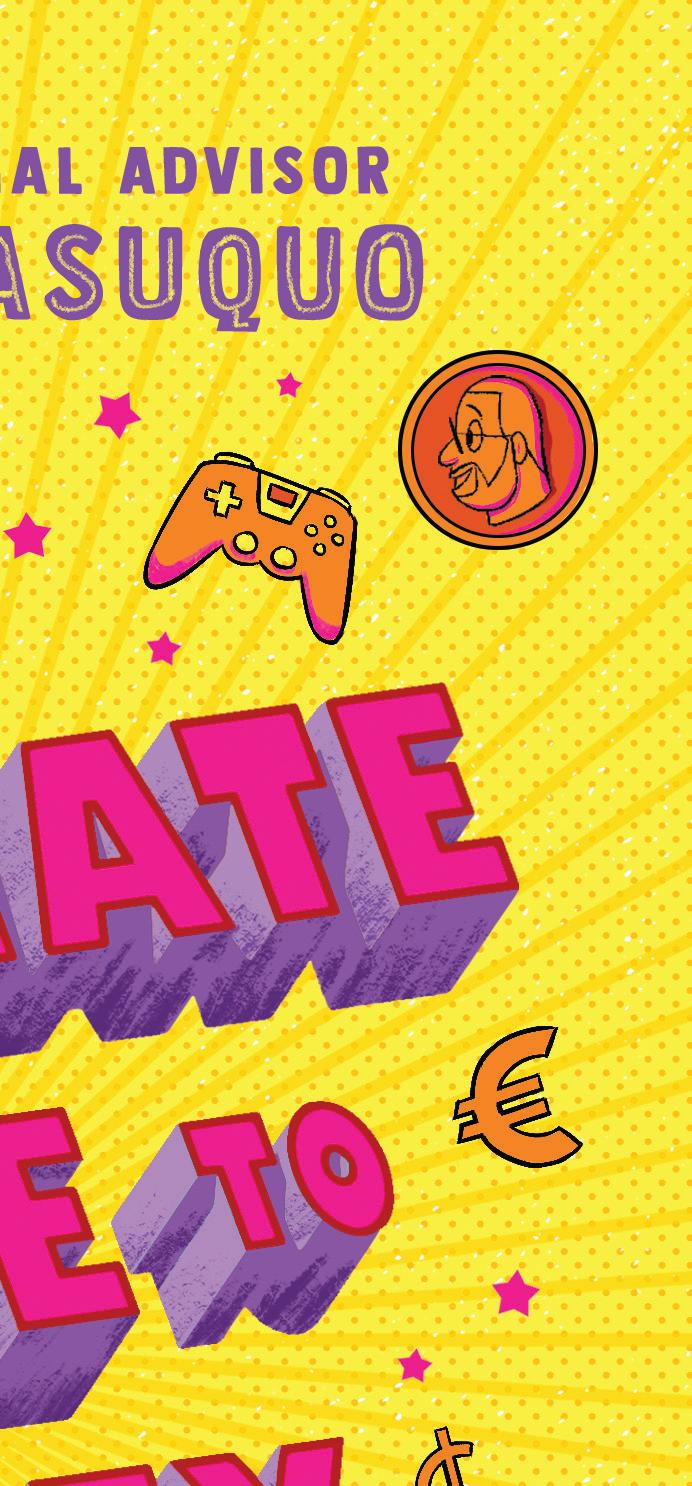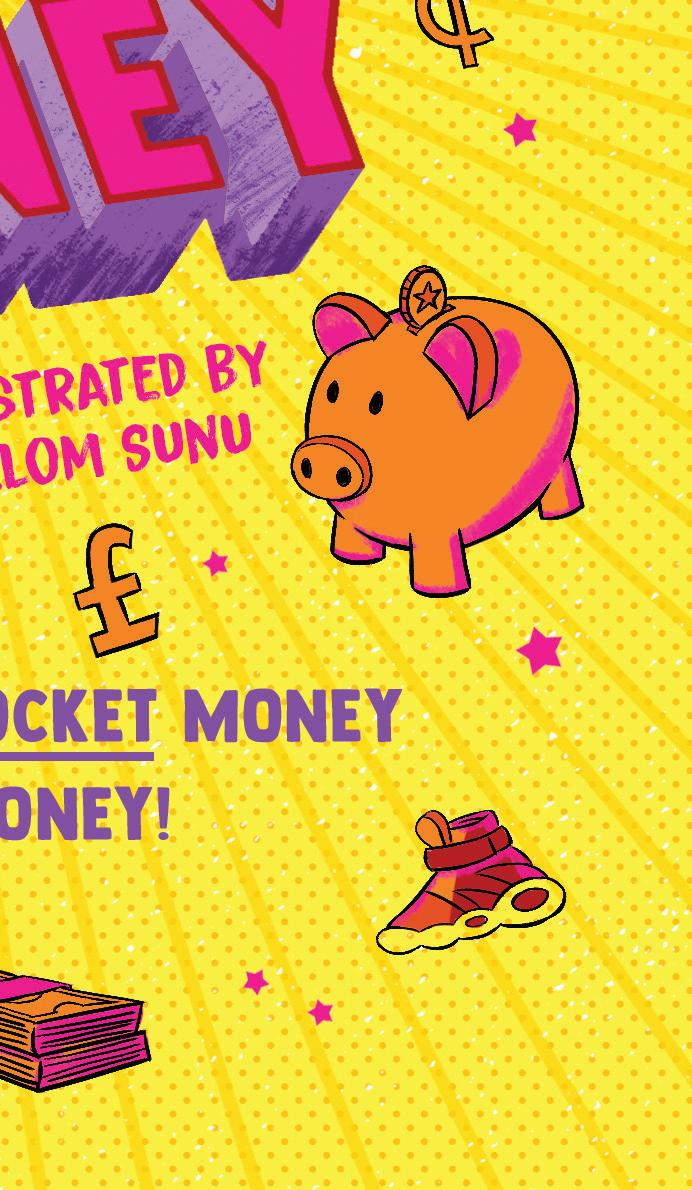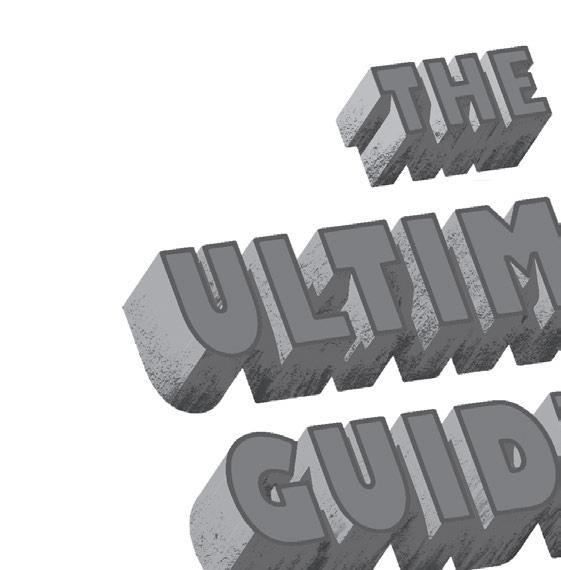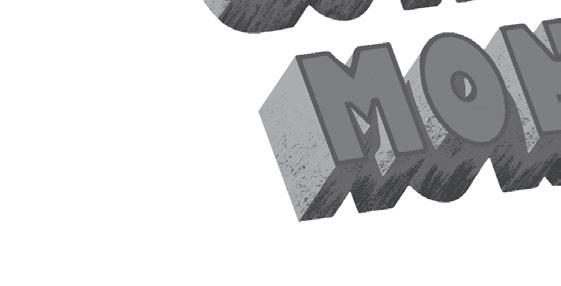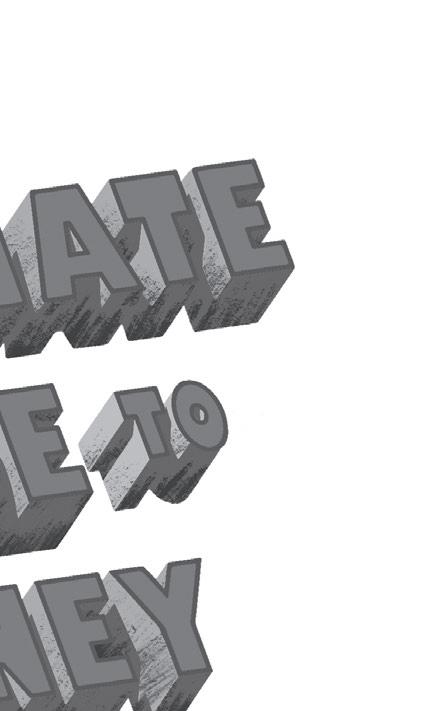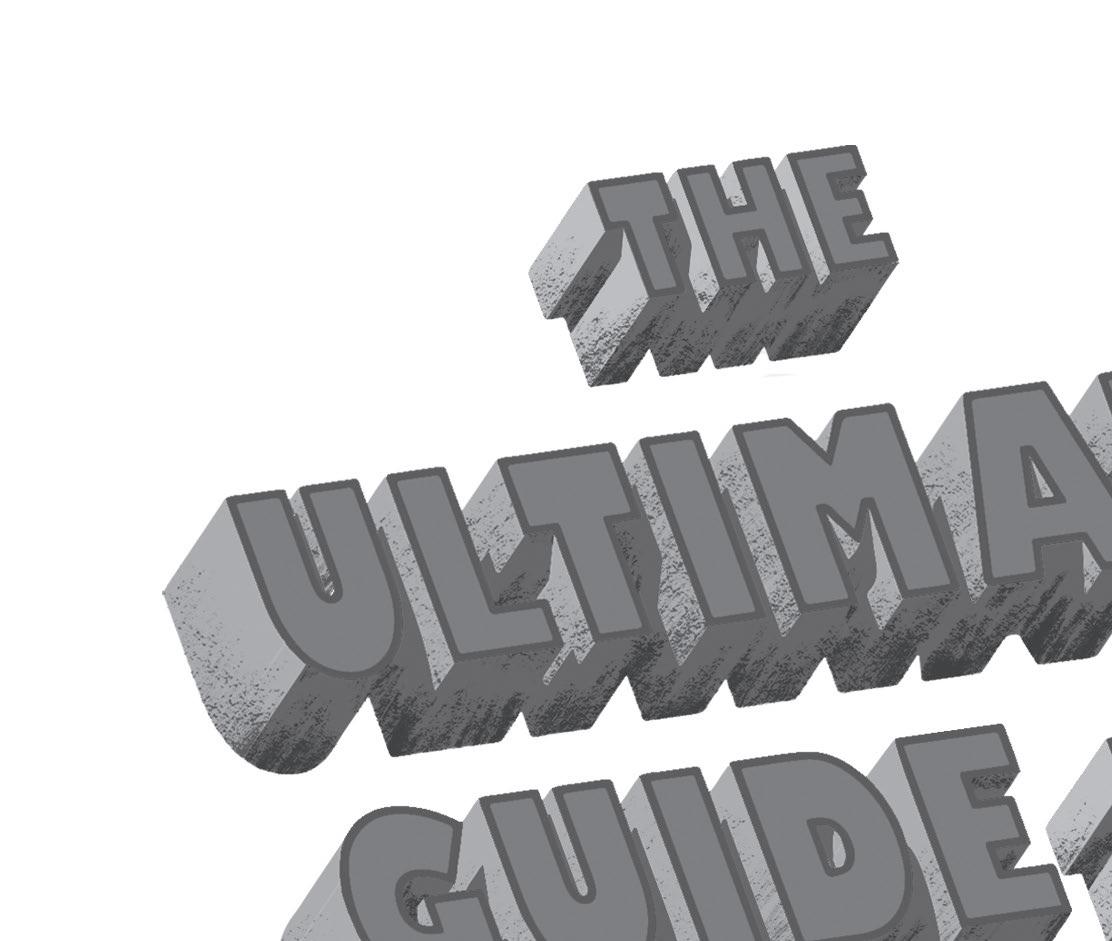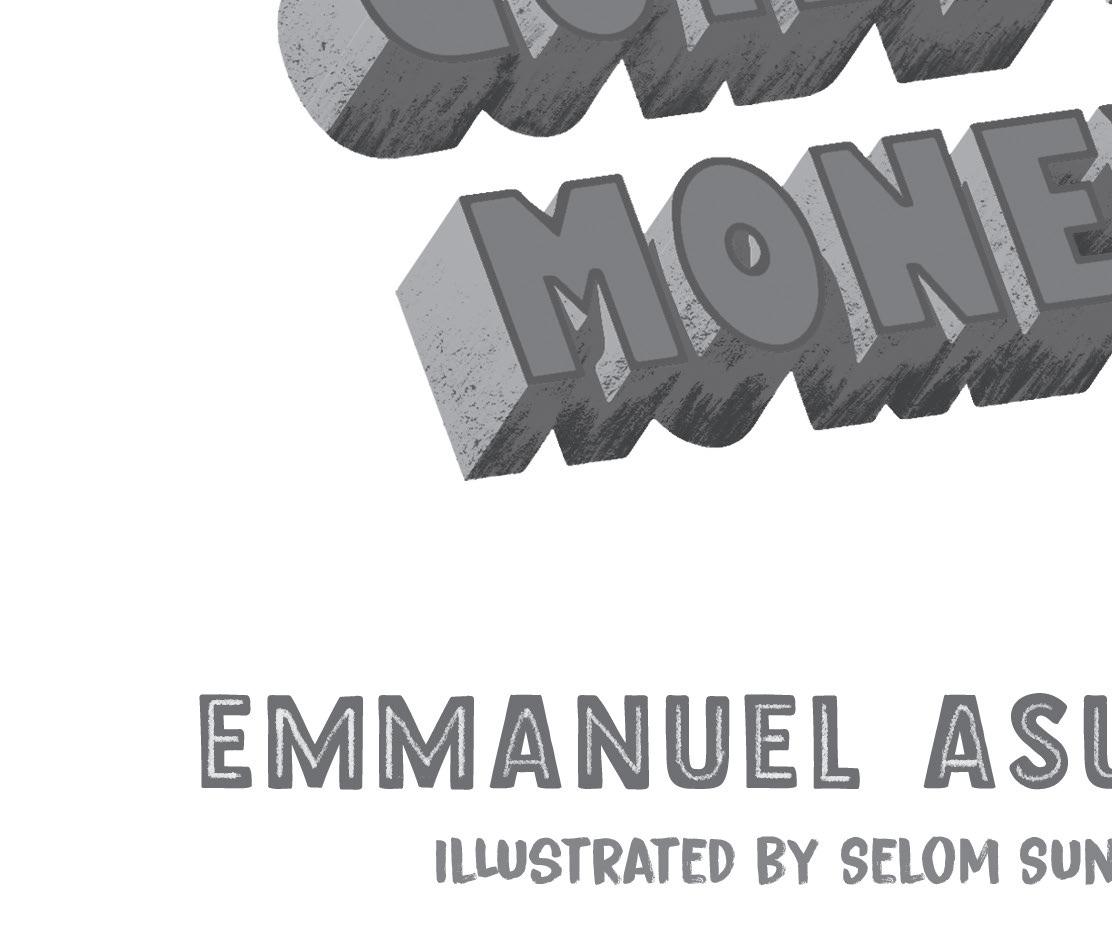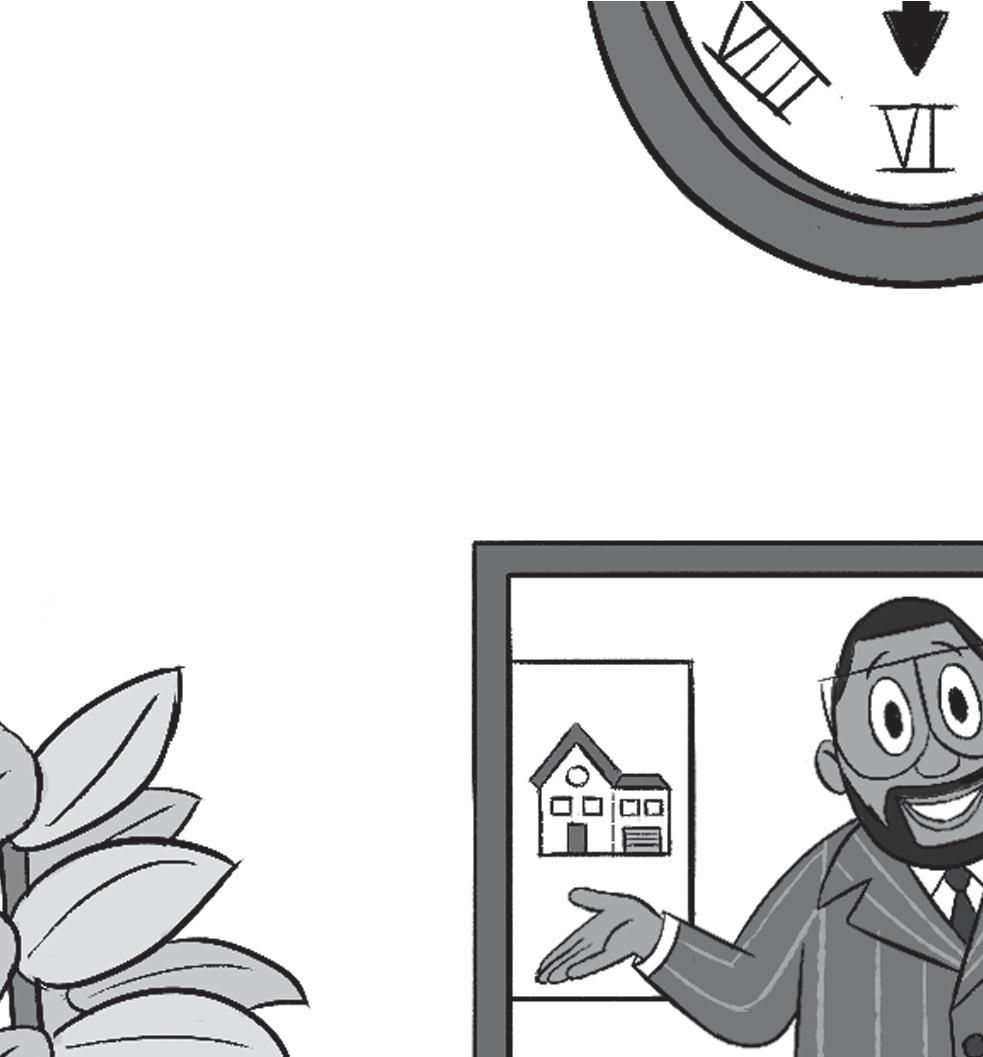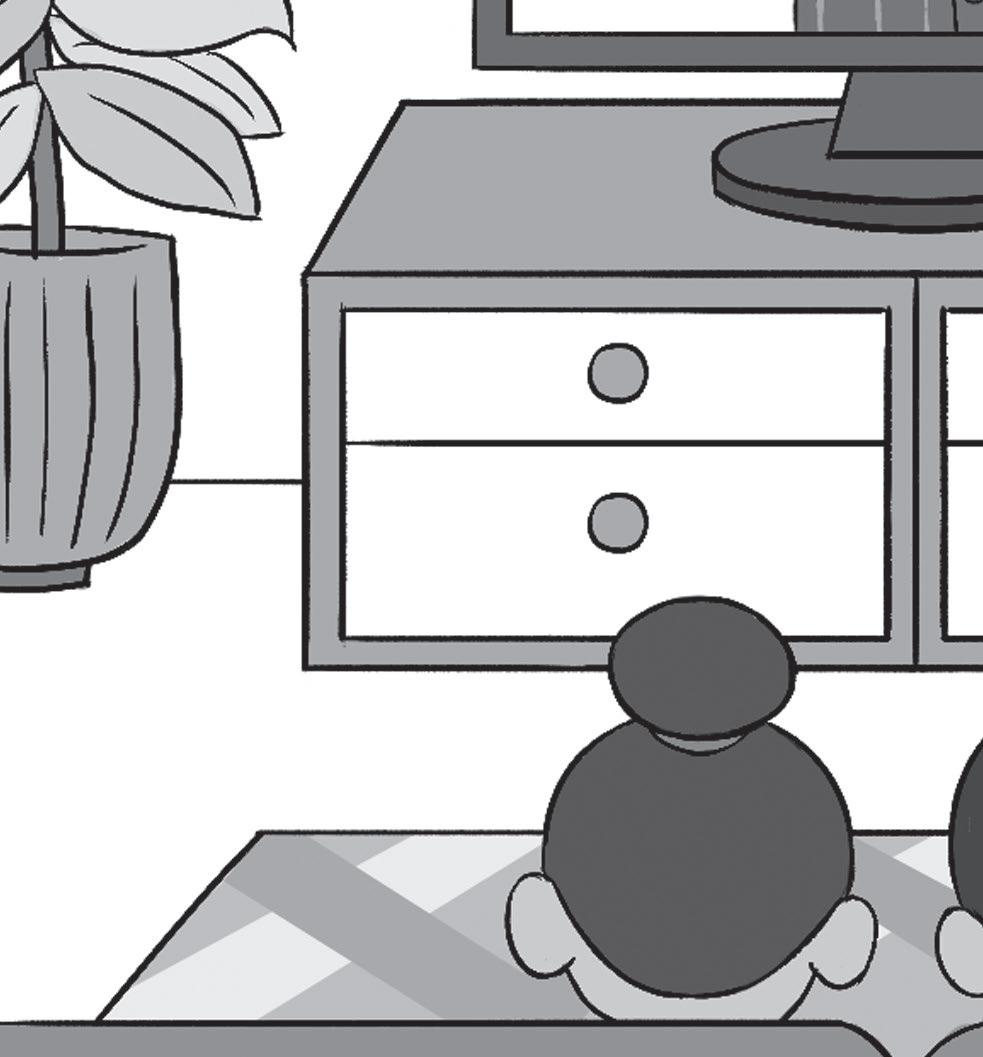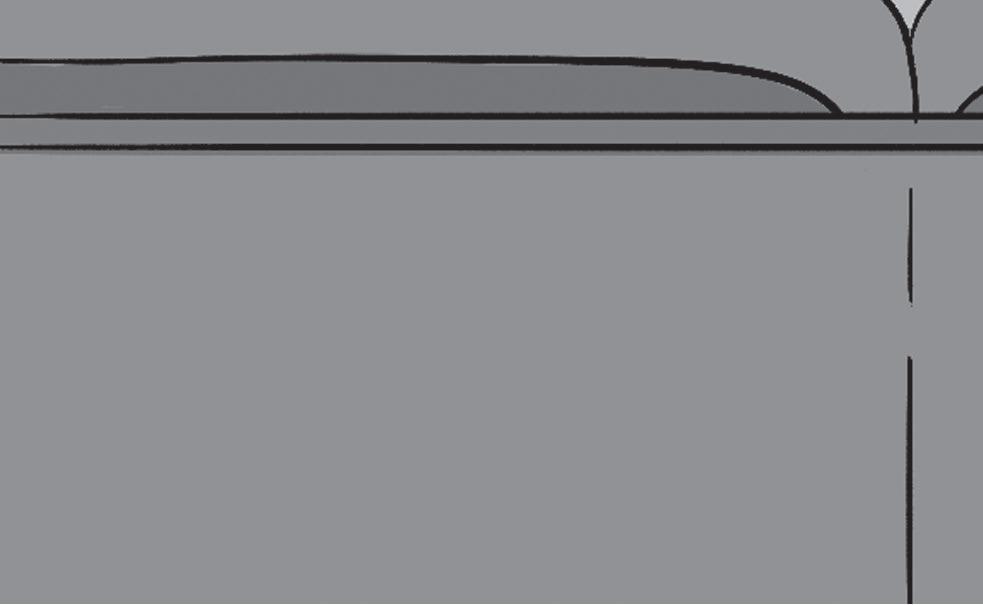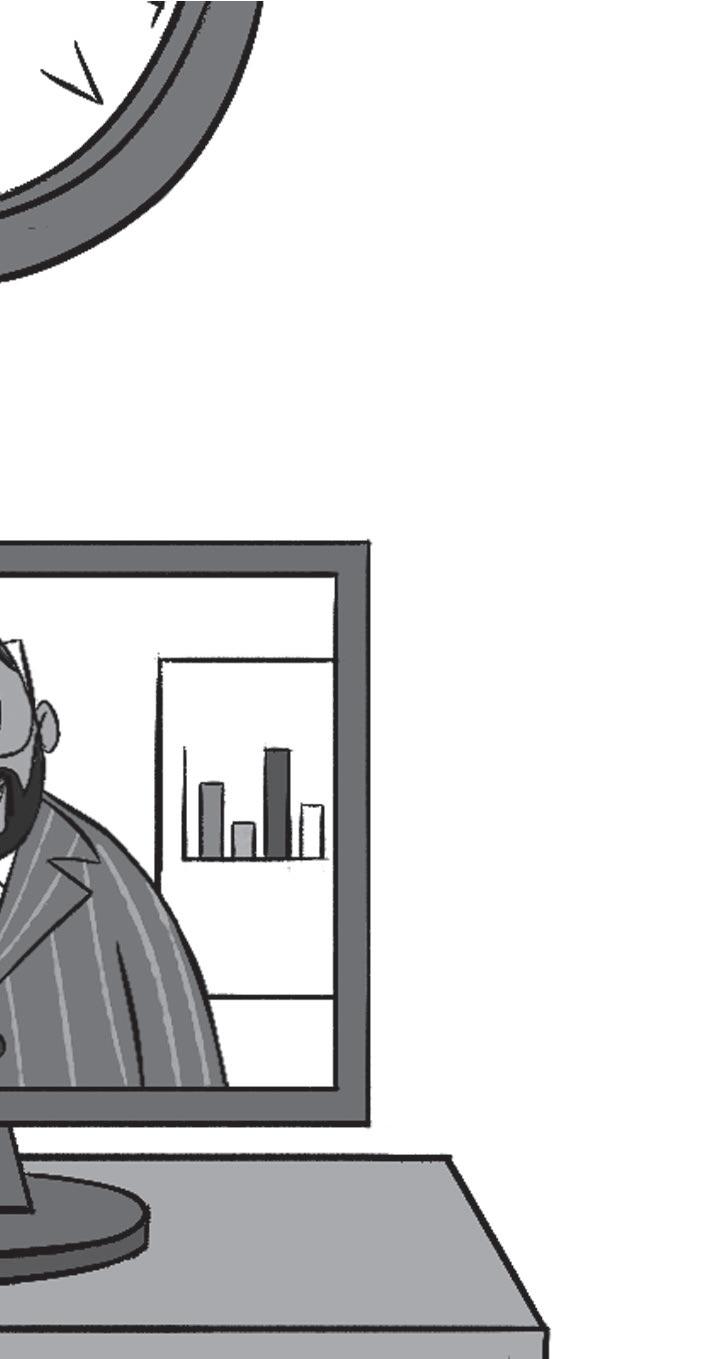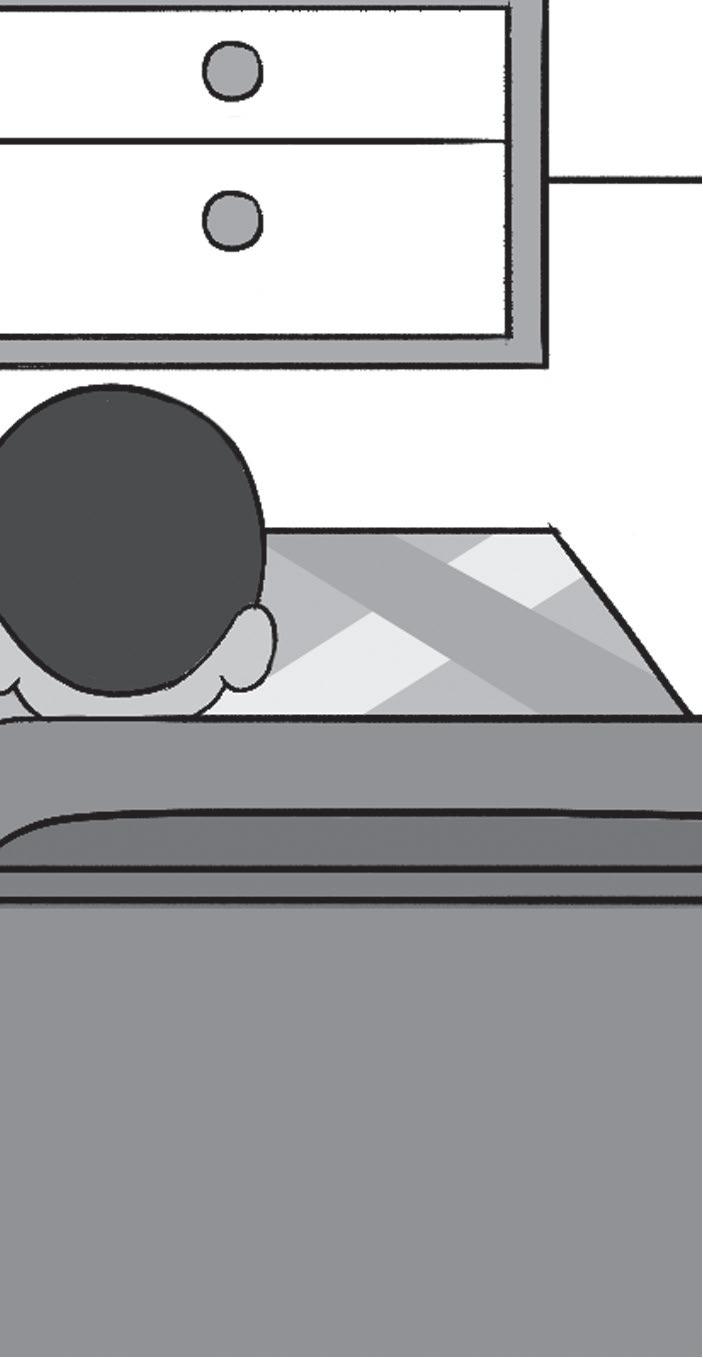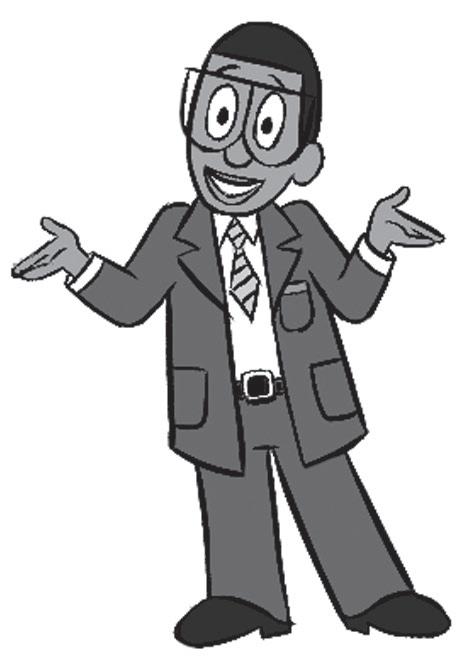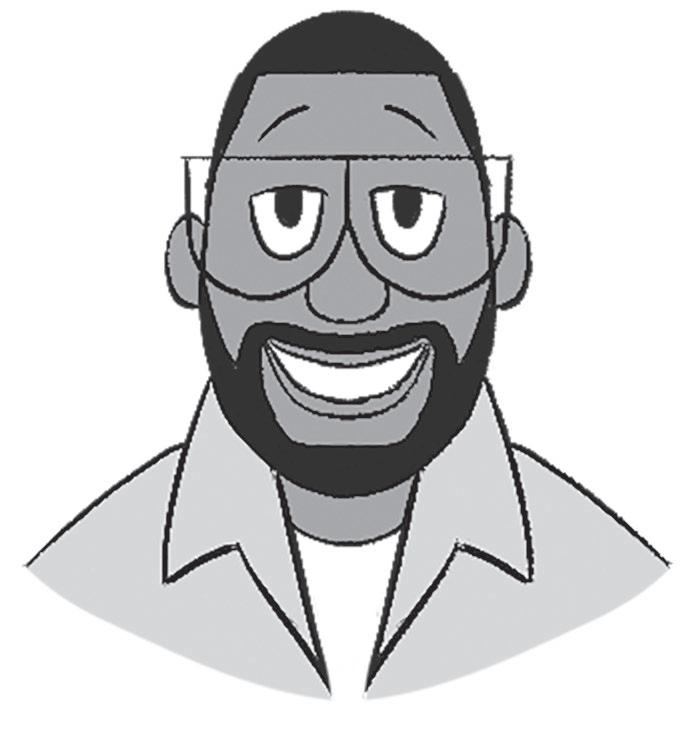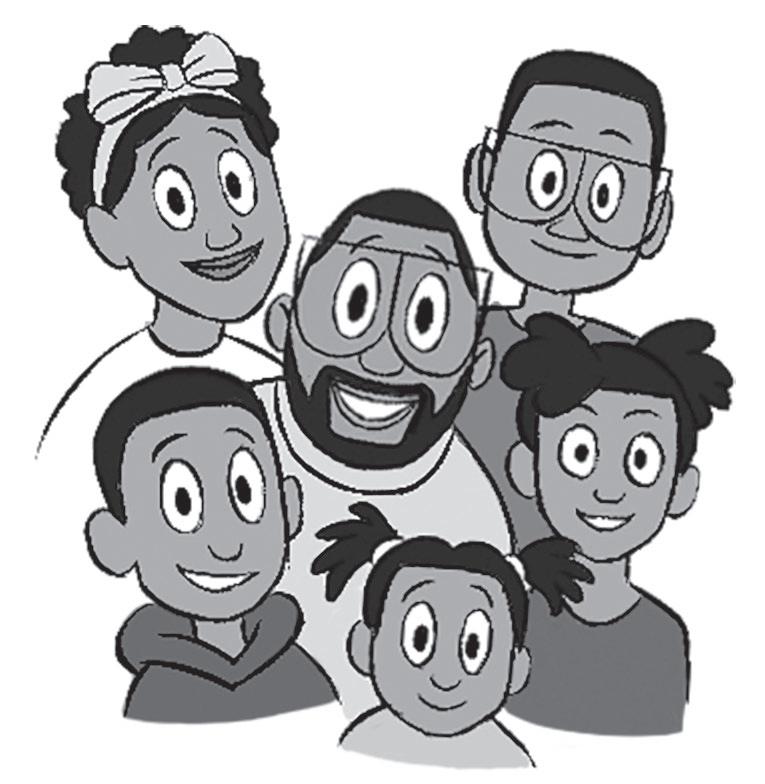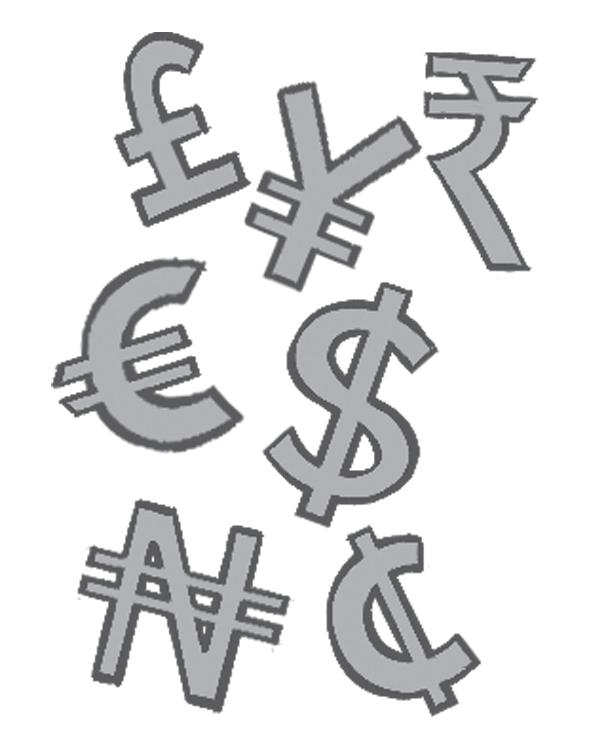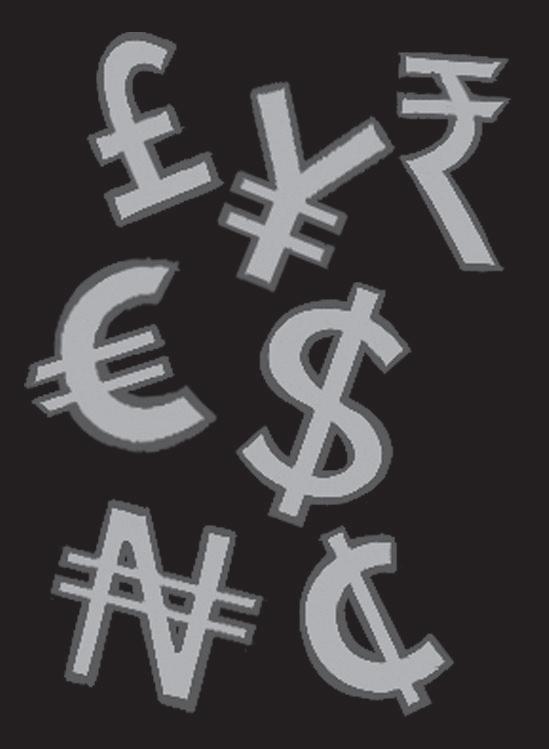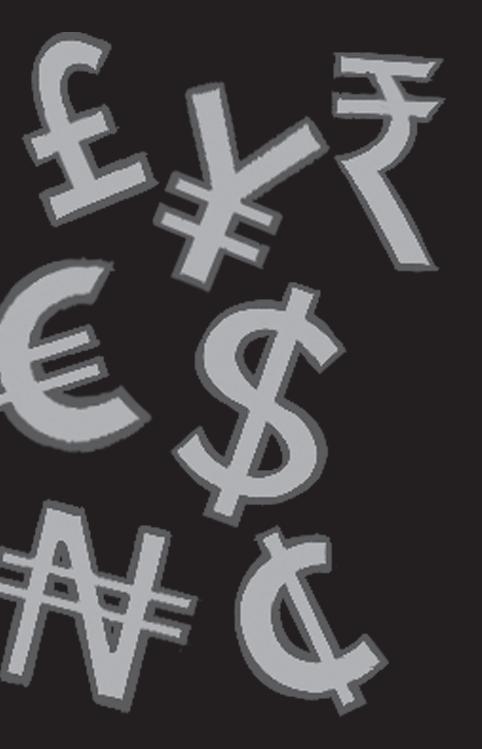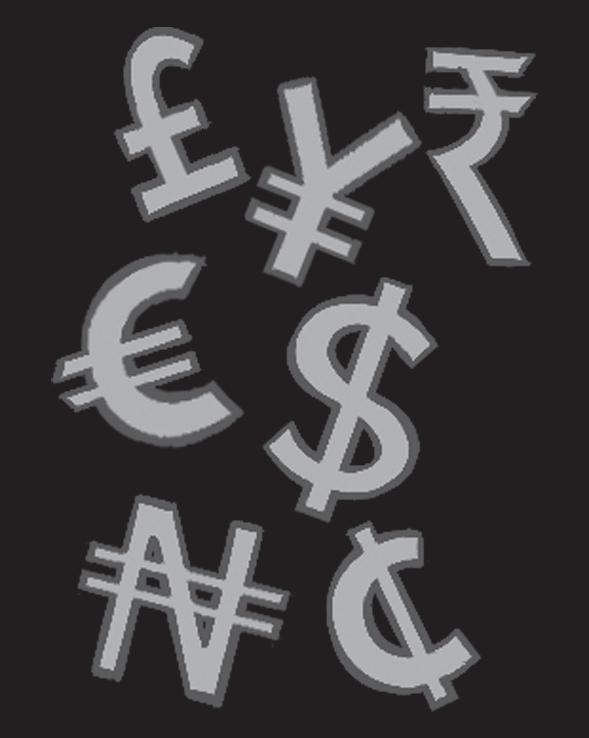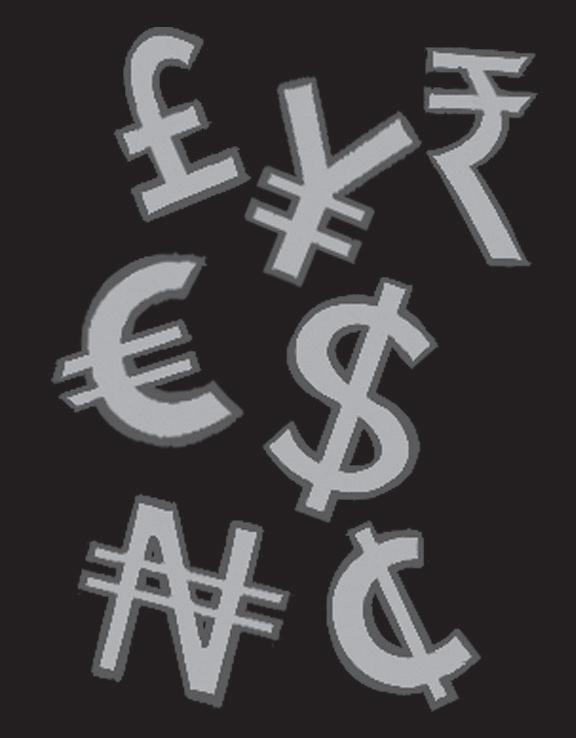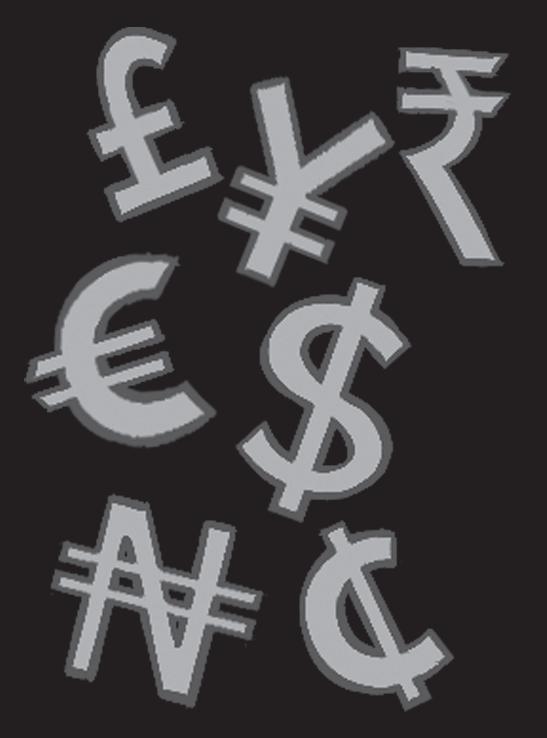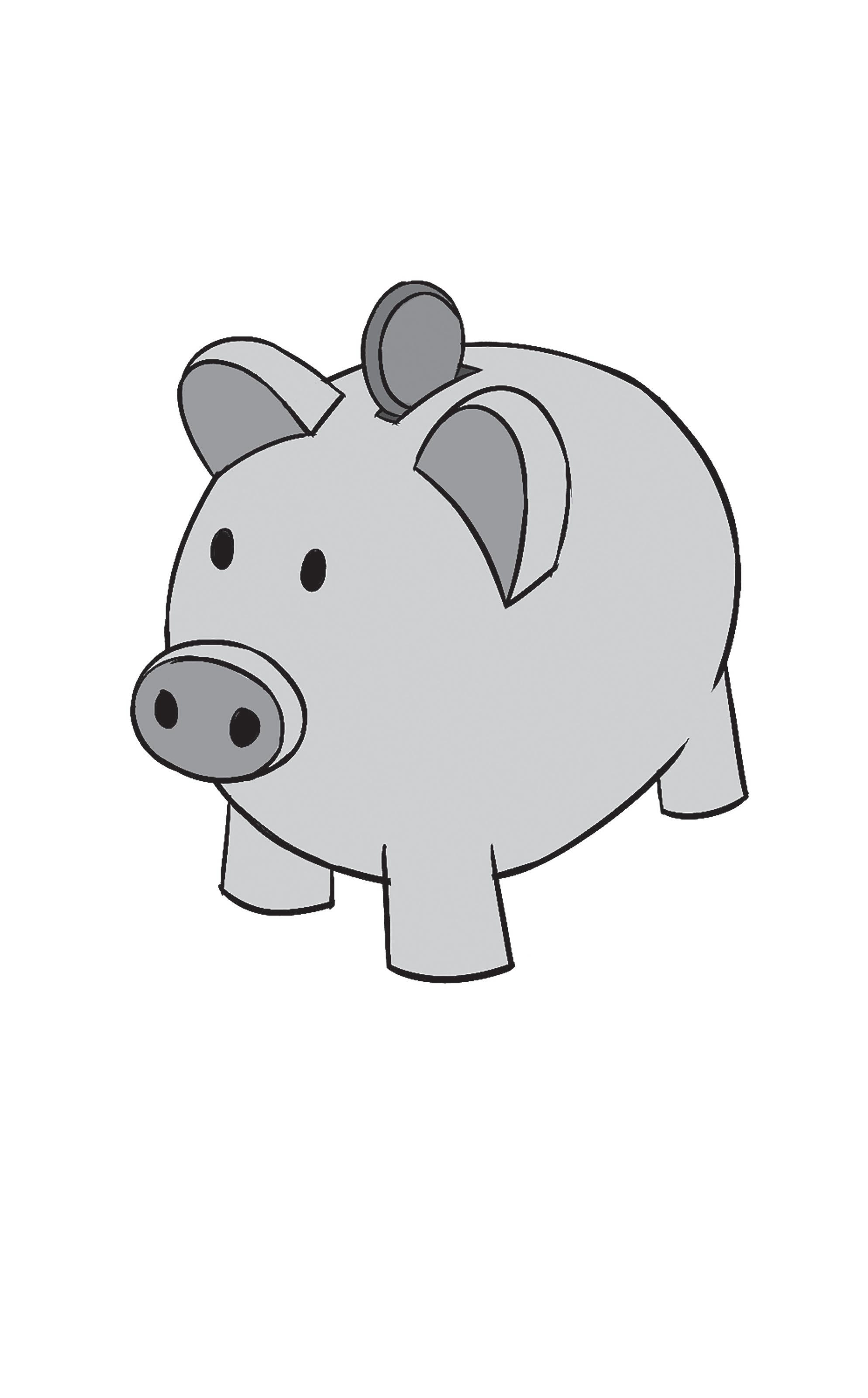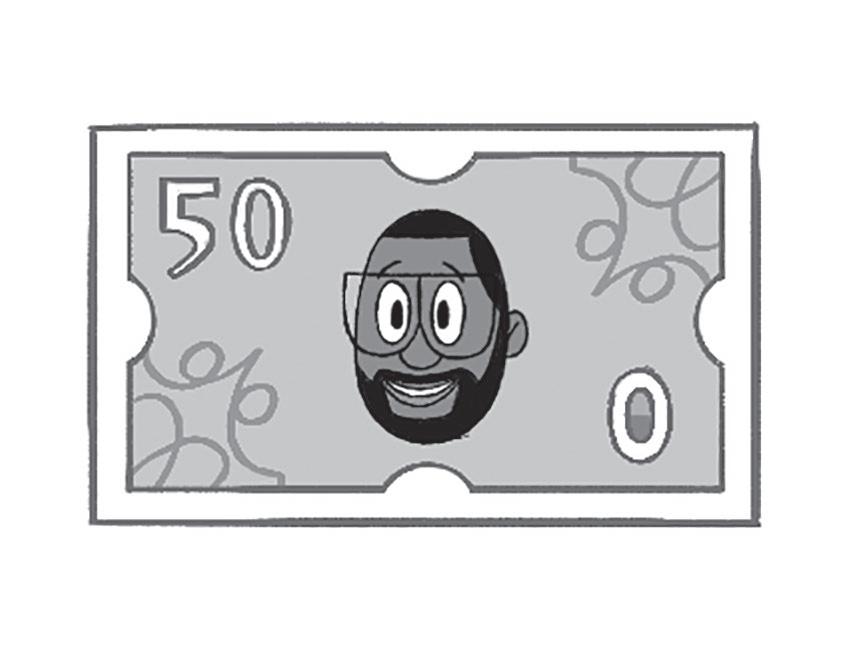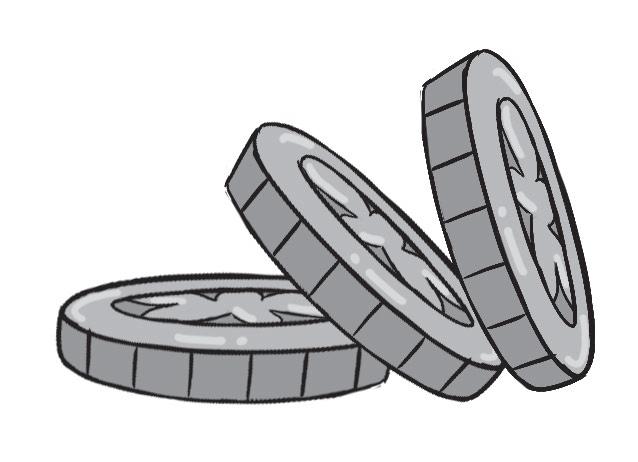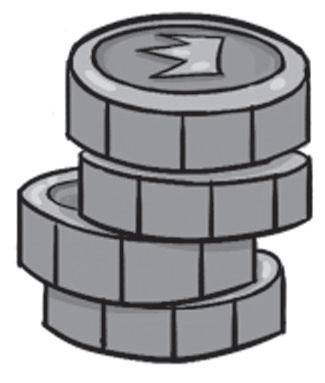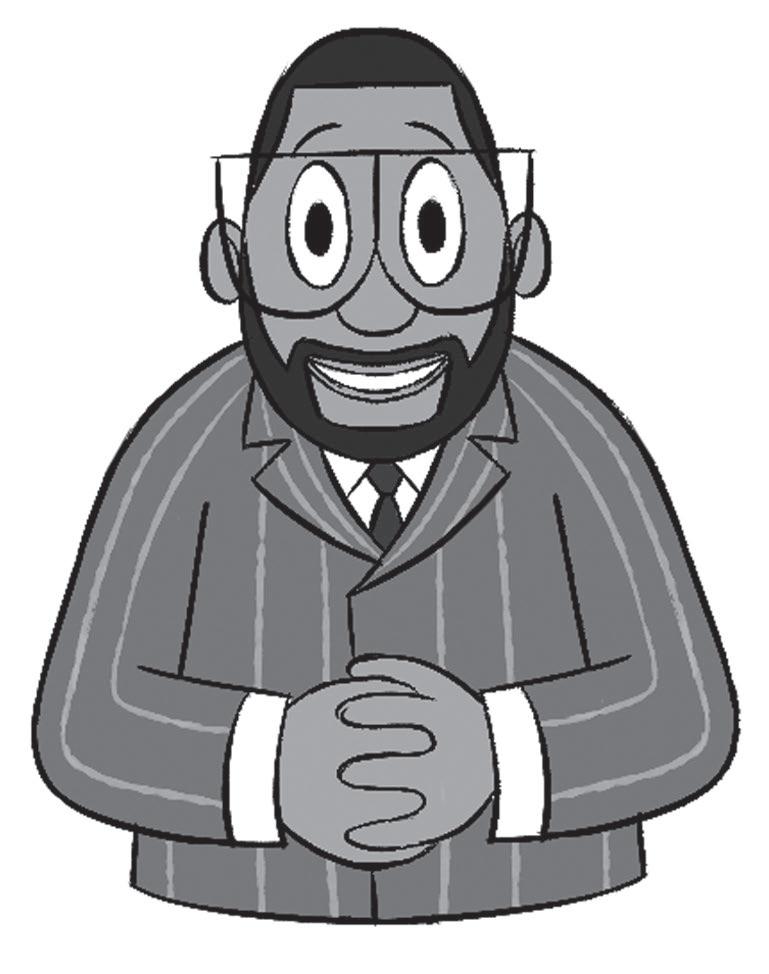PUFFIN BOOKS
UK | USA | Canada | Ireland | Australia India | New Zealand | South Africa
Puffin Books is part of the Penguin Random House group of companies whose addresses can be found at global.penguinrandomhouse.com.
www.penguin.co.uk www.puffin.co.uk www.ladybird.co.uk
First published 2024 001
Text copyright © Emmanuel Asuquo, 2024
Illustrations copyright © Selom Sunu, 2024
All brands mentioned in this book are trademarks belonging to third parties.
The moral right of the author has been asserted
Text design by Dynamo Limited
Printed in Great Britain
A CIP catalogue record for this book is available from the British Library
The authorized representative in the EEA is Penguin Random House Ireland, Morrison Chambers, 32 Nassau Street, Dublin D02 YH68
ISBN: 978–0–241–64155–2
All correspondence to:
Puffin Books, Penguin Random House Children’s One Embassy Gardens, 8 Viaduct Gardens, London SW11 7BW
Penguin Random Hous e is committed to a sust ainable future for our business , our readers and our planet. is book is made from Forest Stewardship Council® certified paper
Introduction
Hello! Welcome! Nice to meet you! Let me guess: you’ve picked up this book because you’re keen to learn about money, so you thought this might be a good place to start? Or maybe you just want to know the secret to making a million pounds? Well, that’s impressive. I was nowhere near as savvy as you when I was your age.
Excuse my manners. Allow me to introduce myself. My name is Emmanuel Asuquo, but you can call me Eman (that’s E-man) for short. I’m a MONEY MAN a.k.a a financial advisor. As a financial advisor, it’s my job to help people make good choices about their money. You might have even seen me on the telly talking about money and helping people work out how to spend it, save it and grow it. But don’t worry if you haven’t because this book contains all the lessons you need to become a money master.
When I look back at my school days, some of the stuff I was taught was useful. But there were also some things that I have, personally, never used since. Like pi, and I ain’t talking shepherd’s or apple (it’s a maths thing)! Or the elements of the periodic table. Or how to analyse every single word in a poem.
Anyway, I learned a lot at school, but I learned nothing about finance. Not a single thing. And that bugs me. In fact, it bugs me so much, I have spent much of my career teaching people all the things about money and finance that I think we should all know but aren’t taught.
And recently I started to wonder, why wait until people are grown up? What if people started learning about finance when they were younger? And that led me to writing this book for you!
Before we begin, LET ME
TELL YOU A LITTLE BIT ABOUT
MYSELF. I was born in Tower Hamlets in East London to Nigerian parents. I wasn’t the best in school academically, and – I’ll be honest – sometimes that knocked my confidence and made me feel like I would never be successful. But there was one thing I was always great at and that was sport! I also had great parents and an inspirational PE teacher who encouraged me to believe in myself. With their support, I achieved the grades I needed to make it to university, where I studied accounting and finance.
While I was studying, I worked part time in a bank as a cashier, where I would help people pay money into, or take money out of, their bank accounts (we’ll talk about what all of this means later in the book).
Introduction
This experience taught me a lot about finance that I didn’t know before, and I even found myself using things I’d learned in my maths lessons in real life (except pi . . . I’VE NEVER USED PI!).
After I graduated from university, I became a financial advisor at the age of twenty-two. In fact, not to brag, but I was the youngest financial advisor in the country! I was really proud of myself, and it showed me that we can all do well if we work hard and believe in ourselves.
A few years later, I married my beautiful wife, and we now have four amazing kids together. This is where things changed. Don’t get me wrong, I loved working as a financial advisor, but after ten years in the role, I was ready for something new. I found myself spending a lot of time having meetings with people who already had loads of money, giving them advice on how to get even more of it! And it didn’t feel fair, especially since people from backgrounds like mine didn’t have access to financial advice because they couldn’t afford to pay for these meetings. This meant they didn’t have the opportunity to learn
HOW TO GROW THEIR MONEY
.
I felt like I had to do something about it, so I decided to start my own business and share the knowledge I had gained over the years with more people.
I tried to make it affordable for everyone, regardless of where they came from. And it was a great success! I stopped working in a bank and turned my side hustle into my main job. Fast forward to now, and I regularly give talks about money at different events and on various TV programmes, teaching people how to save, spend and grow their money in the best way possible.
And now I want to help you!
Like I said, I struggled with some subjects at school. So I didn’t want to write a book just explaining all of the confusing words out there about money and finance, because if kid Eman was reading this he would definitely get BORED and just close the book. Instead we’re going to play a game, and along the way, as well as having some fun and making some cash (well, fake cash), we’re going to learn loads about money and banks and interest rates and inflation and shares and . . . OK, I’ll stop there because I can feel you drifting off already. But the point is we’re going to learn all about these things within a game.
So, what game are we playing? Well . . .
We’re going to be turning £1 into £1,000,000!
Introduction
(Confused by all those zeros? Don’t worry, six zeros means a million!)
DISCLAIMER!
I live in the UK, so I’ve used £1 throughout the book, but you can substitute this for whatever currency your country uses.
Sounds impossible, I know, but it’s not. I’m not saying it’s going to be easy – if it was, we’d probably all be millionaires by now! It will take time, and in each chapter, we’re going to break the journey down into small goals. Then the goals will get bigger and BIGGER and BIGGER as we move through the book.
As well as having fun, I hope you will be able to take everything you learn from the game into the real world too. And who knows – maybe you’ll be able to use the lessons from this book to become a real-life millionaire one day!
Are you ready?
CHAPTER 1 Money, money, money
Before we get going, I think we need to answer a pretty basic but very important question.
WHAT IS MONEY AND WHY DO WE USE IT?
I mean, think about it – what’s it really all about? Why do we have coins and bits of paper with people’s faces on them and why are they worth so much? I’ve got a button on my coat that’s a similar size to a pound coin, but no one seems to want that in exchange for anything. So, what’s the deal with money? And why do we need it?
Think back to the earliest years of your life that you can remember. When all you wished for was a toy or a game or a book, and a simple lollipop would be the highlight of your day. Don’t even get me started on the joys of a Happy Meal! That would make my entire week!
Even now, it can seem like magic when you wake up on your birthday and there it is: the exact thing you wanted, all wrapped up and waiting for you to rip into it. Ah, good times.
But the thing is, those gifts and treats DON’T JUST APPEAR BY MAGIC. They are yours because someone has spent their money on them. Their cash, their dollars, their bread, their bees and honey. (That last one is what we call it in East London. Why? Well, say it out loud . . . what does ‘honey’ rhyme with?) But you get my drift: they spent their coins to get you that gift! And it’s not just gifts that cost money. In fact, most things do. Money is all around us. Most days you get dressed, travel to school, use pens and paper, and maybe watch TV. All of these things have to be paid for with money – the clothes, the transport, the stationery and the electricity. Without money, you wouldn’t have or be able to use or do any of these things.
You see, our world is built around this thing called an economy. I know this sounds complicated, but it’s actually pretty straightforward. An economy is the way that people spend and make money, which is usually by either buying or selling products or services. This means that any time we buy a product (such as food, clothing or a game) or use a service (such as taking a bus or getting a haircut) we typically owe someone money. These actions of buying and selling are what form an economy.
money, money, money
Money tells us how much things are worth, how much wealth we have and what we can (or can’t) afford to buy. This is why money is so important: it’s the way we get the things we need. Without it, life can be very hard, as money is needed to have somewhere to live, pay for water and electricity, buy food, use the internet, buy new clothes and do the fun things that we enjoy. Money isn’t the key to happiness, but it certainly makes everyday life much easier if we have enough to meet our basic needs.
But there was a time when people didn’t use money at all.
SHOCKING, I KNOW!
The world before money
Before the days of gold coins and glossy notes –before we could spend money online or with the simple tap of a bank card – people would barter, or in other words, swap one thing for another. Bartering was the main way PEOPLE WOULD EXCHANGE GOODS AND SERVICES up until about 3,000 years ago. For example, imagine you have an apple tree, but you don’t have anything to store the apples in when they’re ready. The good news is your neighbour makes baskets. You could offer to give them some apples in return for one of their baskets. This is a fair exchange as it leaves you both happy – you don’t have to juggle your apples any more because you’ve got a basket and they get a tasty treat!
This, my friends, is an example of bartering. You agreed with each other the amount of products you wanted to swap, and then made the swap. In the past, people have traded many different things this way, including food, such as fruit and vegetables, or skills, such as sewing and shoe polishing, and even animals, such as goats and pigs. Say someone needed their shoes shining – they might have paid someone else two apples for the service. Or if a farmer needed new clothes for their family, they might have given the tailor a pig in exchange for all of their work. You may have bartered yourself without even knowing it. Have you ever made a deal with your parents to do a few chores around the house in exchange for something you really wanted? If so, clever bartering, my friend. YOU’VE GOT THE RIGHT
IDEA ALREADY.
But the bartering system wasn’t perfect. What would happen if you, as the town’s apple seller, needed something, such as more baskets, or some milk, but it wasn’t apple-picking season so you didn’t have anything to barter with? You’d suddenly struggle to get anything you needed until the apples were ripe again. And what if you wanted to barter for something outside of your local community? Apples or pigs could be heavy or tricky to move over long distances.

